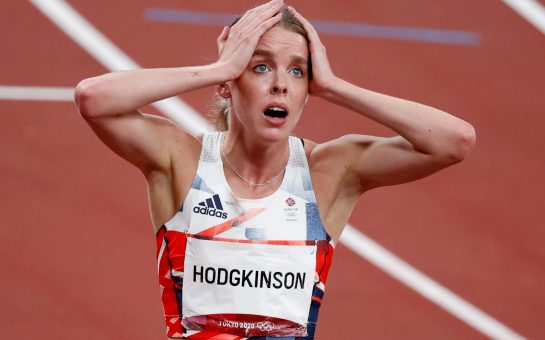The recent disgust and anger of inadequate food parcels has now sparked debate over the outsourcing of Government affairs to private businesses. A debate that highlights the ugly and gruesome operation of capitalism.
The now infamous photos taken by deflated mothers, fathers, aunts and uncles showed how little was included in these food parcels. Parcels that were only begrudgingly handed out, after a hard-fought campaign by footballer and leader of the opposition, Marcus Rashford.
The tweet which sparked the debate, shared by Roadside Mum on Twitter showed her child’s provision said to last ten day. Many soon calculated her supposed £30 parcel came to just over £5.
One of many companies delivering food parcels like these to families is Chartwells, owned by large food supplier Compass Group. A FTSE100 company run by the super-rich.
Since 2016 they have received almost £350 million in school meal catering contracts and are the biggest player in this sector in the UK.
Cronyism is also in the mix here. Paul Walsh, who stood down as company Chairman last month, has given more than £10,000 to the Conservative Party.
He also acted as business advisor to David Cameron during his early years in Downing Street.
It was reported that company CEO, Dominic Blakemore, earns 280 times more than the dinner ladies his company employs in an average year.
According to figures from the Government website, secondary schools has seen the sharpest rise. An increase of 6.5% between 2017 and 2021. Closely followed by primary school kids, who saw a 5.9% rise.
When broken up by region, it’s clear the north is, more dependent on free school meal handouts.
The northeast had 24.5% of all students on FSM’s in 2020/21. The surrounding regions held similar numbers, all ranging around 22%
Further down the country, London stood out as an anomaly, with 22.4% of its pupils eating free school meals, a percentage mostly seen in northern regions.
John Collinson, Deputy Head at a primary school in Stockport, South Manchester believes the handling of Free School Meals shows an ignorance and incompetence right at the top of decision making.
Collinson said: “The food packages put together by the private catering services is an insult. They’re just not good enough.”
Pupil Premium and Pupil Premium Plus are initiatives designed to help families in need. Giving students a free school meal and money to ensure kids can concentrate on learning at school. Yet the computer-generated thresholds for these helpful schemes have left some families vulnerable.
Collinson added: “Our main problem is the families who fall just below the threshold who really are struggling. We call this group vulnerable, and I currently support 25 families across all year groups.
“I was delivering food on Monday to a family in desperate need, with 3 FSM children and no vouchers yet available. This is scandalous.
“One of the main issues with FSM is the free lunches for all infant children. Some families don’t want the tag of FSM when their children move into the juniors.
“Marcus Rashford is right to be the voice for this group of people. Sadly, our government doesn’t care”, Collinson finished.
But why are we seeing a rise in families signing up for free school meals?
One factor is that real wages are stagnating whilst profits have soared.
According to figures collected by the Financial Times, between 2011-2017 real wages in G7 countries grew by less than 3%, whereas dividends to wealthy shareholders saw an increase in 31%.
This is Neoliberalism at work. A system that worsens already extreme inequality and division by putting the shareholder first.
The ones who pay are the families on the breadline which then pushed even more of these families to have to rely on food handouts, a pattern which has only been worsened and widened by the ongoing coronavirus pandemic.
The big food suppliers, like Compass Group, have continually lobbied the Government to approve parcels over food vouchers, claiming they can use their scale to provide cheaper food.
Compass Group and similar food provides are a product of the state, not of the market, meaning they operate on thin margins themselves.
That however means the quality of product they provide for families in need during the pandemic has been woeful.
This in turn keeps the system of ‘value for money over value for people’ alive and well at a time when value for people is so greatly needed, especially for those in the north.
The concentration of Free School Meals in the north of England during the pandemic has played out against a backdrop of continuing economic decline in northern regions.
The pandemic sniffed out social and economic inequalities, ethnic and regional divides and exacerbated them. Figures all too easily serve to remind how the north of England was the worst hit area of the country.
More northerners unemployed. More kids stunted in poverty. More northern bodies buried.
Many papers, pamphlets and percentages produced in the storm of this virus suggest the north/south divide will widen due to the impact of COVID-19. Serving inconvenient questions for Westminster about how to answer upon their golden hymns of ‘Levelling Up’ the nation, a key point of their 2019 re-election.
Government figures above show the disproportionate impact on the north. At the peak of the virus in May 2020, the northwest was recording 145 COVID-related deaths per day, more than double the death rate in the southwest.
Everywhere else in the UK, apart from the southwest were recording over 100 COVID deaths a day at this time. And it’s a pattern which has largely been a constant throughout the pandemic.
And ONS data released in May 2020 shows that based by age, the COVID death rate is roughly twice as high in the deprived areas of the country compared to the least deprived.
But why?
Hannah Davies, the Health Inequality lead for the Northern Health Science, who helped author a paper on how the North suffered most during the pandemic, believes the increased death toll in the north is down to socio-economic factors which have long described the differences between north and south.
Davies said: “Our report indicates they are to do with factors including high prevalence of child poverty, worse job security, worse mental and physical health. Over half the North has worse health than the worst area in the south of England.”
The north has historically been underfunded and trails behind in health innovation spending, resulting in less spending per head.
“Per person we get £21 compared to £62 in the richer, healthier regions of London, Oxford and Cambridge. The health and economic inequalities between the north and the rest of England have been clearly illustrated through the pandemic which has hit the north harder on both accounts.”
Figures from NHS England above show that the north registered 1,190 occupied beds. More than the rest of England combined. These figures represent patients who didn’t need a ventilator. Of those patients nationwide at this time, 57.6% of them were treated in the north.
The NHSA’s paper, released in November 2020, detailed in grim numeracy the extent of damages in the north during the pandemic.
The north was hit hardest in terms of mental health and financial wealth during this time. The body also found “adverse trends” in poverty, education and employment in young people have worsened since March 2020.
Their findings show 12.4 more people were to die of Covid in the Northern Powerhouse region than anywhere else in the country. An excess death figure than could cost the UK nearly £7 billion in lost productivity.
Levelling up the country is now key for the region’s regrowth.
Davies added: “We need to stop the sticking plaster solution with significant investment in public health, health research and development and infrastructure in the region.
“The pandemic has demonstrated that we chip away at the infrastructure that underpins our communities and industry to our own detriment.
“What I know,” Davies said positively, “is that the North of England is resourceful and resilient, and we have a huge will to build back better.”
Image credit @RoadsideMum via Twitter



